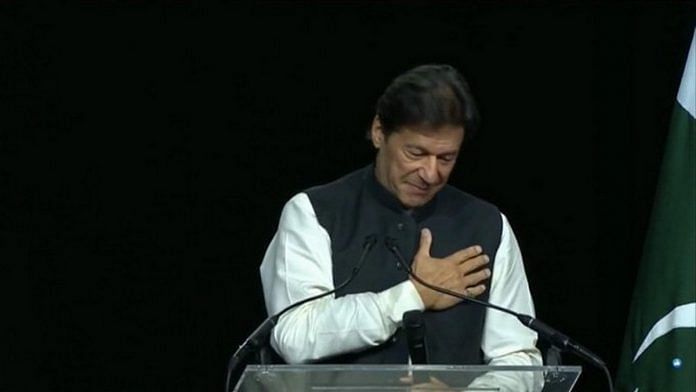The order of international relations is inherently hegemonic. China’s strategic investments in South Asia reveal its intent to establish a new relational economic order in the region. But that plan now appears to be in jeopardy as two South Asian nations — that have openly accepted Beijing’s developmental aid — have plunged into deep political and economic crisis.
So far, China has refrained from officially commenting on the situation in Sri Lanka and Pakistan. Chinese State media have so far just factually reported the events. But there is growing chatter on social media about the uncertainty prevailing in the two nations. The political crisis in Pakistan has elicited more reporting by Chinese state media, and the economic crisis in Sri Lanka is being discussed by the Chinese public.
Don’t just blame China on Sri Lanka
Chinese State-owned The Paper reported that Sri Lanka has restricted access to TikTok.
“According to reports, access to major social platforms in Sri Lanka, such as Twitter, YouTube, Metaverse, TikTok, Instagram, and WhatsApp, has been restricted, and users are unable to log in,” said The Paper article.
The hashtag “Sri Lanka economic crisis” was briefly used on Weibo, but didn’t grow as a trend. The Chinese State media reported the president’s office declaring an emergency in the country.
China’s embassy in Colombo asked citizens to pay attention to local developments following the protests on Sunday against President Gotabaya Rajapaksa.
Some Chinese commentators are also trying to rescue Beijing from the political turmoil in Sri Lanka.
“Although more than 50% of Sri Lanka’s foreign debts come from the international capital market, China only accounts for 10%, even lower than Japan (ADB), but the Indian media still hype Sri Lanka’s recent economic and political crisis as a result of Chinese loans and to slander the Belt and Road Initiative,” said a prominent Weibo blogger who closely follows Indian military news.
That’s the stance other Chinese State-backed media have adopted as well.
“The Asian Development Bank (ADB) came in second with a 14.3 per cent share, providing $4.6 billion in loans. Japan at 10.9% and China at 10.8%, each providing about $3.5 billion in loans. The rest of the debt is owed by countries such as India and international institutions such as the World Bank and the United Nations,” reported Phoenix TV.
Beijing’s official response, however, to the “debt-trap” allegation in the Sri Lanka case was to blame the “West”. Some experts agree with this line of thinking.
“‘China Debt Trap’ is a conspiracy theory, which reflects a US-led obstruction of China’s ‘Belt and Road’ initiative, which is essentially a political tool. The Sri Lankan Hambantota port, which was built and leased by a Chinese company, is not part of the debt trap, it is not a heavy burden, nor is it a so-called debt-for-equity swap, nor is it an infringement of Sri Lanka’s sovereignty,” said Barry Sautman, Professor Emeritus at The Hong Kong University of Science and Technology in an interview with Phoenix TV.
The Chinese foreign ministry is yet to comment on the turmoil in Sri Lanka or the political crisis in Pakistan. The Twitter account of the Chinese embassy in Sri Lanka has also refrained from commenting on the Sunday protests.
Also read: Oscar should’ve gone to Pakistan PM Imran Khan for best performance to save his chair
Pakistan trends in China
Meanwhile, China’s leading public intellectual Zhang Weiwei heaped praises on Pakistan Prime Minister Imran Khan in a recent conversation. Zhang compared Khan with former Pakistani President General Zia-ul Haq.
“I mentioned in the previous speech that Prime Minister Imran Khan went to Russia on February 24, the day of the military operation. Putin talked with him for three hours. We don’t know what the content was, but it was an important symbolic meaning because traditionally, Russia has had better relations with India, but since India joined the US “Indo-Pacific Strategy”, Russia seems to have distanced itself from it,” Zhang said.
Chinese experts seem to be backing Khan for now, but it’s unclear what their position will be if he is ousted.
The hashtag “Pakistan” was the number one trend on Weibo on Monday. The hashtag “Pakistani prime minister dismissed” was the number two trend on Baidu. The search trend “Pakistani prime minister dismissed from office” was the number one trend on WeChat.
The major theme that caught the attention of the Chinese public was Khan’s allegations about “foreign interference” – a popular topic in mainland China.
Also read: Oscar should’ve gone to Pakistan PM Imran Khan for best performance to save his chair
The hashtag “Pakistan publicly named the United States for interfering in internal affairs” was viewed over 4.8 million times on Weibo. Another hashtag, “Pakistan Prime Minister accused the United States of intending to subvert the regime three times in 24 hours” was viewed over 4.7 million times.
“It’s just a transition, don’t panic. Ba Tie will definitely be able to thwart the conspiracy of the US imperialists! May Pakistan be peaceful and stable,” said a Weibo user in the comments section.
‘Ba Tie’ is a term used for a close strategic partnership between China and Pakistan.
Nowadays, China finds itself engaged in metaphysical jugglery as past narratives of “anti-China forces” aren’t sufficient to counter growing criticism of Beijing. In South Asia, Beijing has a lot of work ahead.
The author is a columnist and a freelance journalist, currently pursuing an MSc in international politics with focus on China from School of Oriental and African Studies (SOAS), University of London. He was previously a China media journalist at the BBC World Service. He tweets @aadilbrar. Views are personal.



